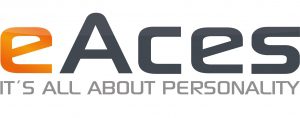We will not run out of work.
Global competition and rapidly advancing digital transformation require a new generation of employees and experts. Every employee might have even a mission, but everyone certainly has a vision.
The technology and IT industries are also at the heart of the rapid transformation towards digitalization. The advent of ever new technologies and highly complex system landscapes requires broad expertise and special qualifications.
Dealing with Big Data
A few years ago, we were faced with the problem of obtaining information. The opposite is often the case today. Digitalization provides an enormous amount of information, which in turn leads to new business processes and solutions. The challenge for many companies is now to evaluate complex amounts of data in a targeted manner and to filter out relevant information. “Data is the oil of the 21st century” – this phrase has been an indisputable truism for several years now.
Experts who rise to this challenge – such as the Data Engineer or Data Scientist – are in higher than average demand.
Know-how about Artificial Intelligence
Artificial intelligence will certainly take root in various areas of our society. Among other things, AI can even detect mood swells and sexual orientation in people. AI can learn and recommend effective therapies based on genetic data. It can communicate and improve or facilitate people’s lives, provided that they are also ethically grounded.
This is where job profiles emerge that we cannot yet describe, as they will also define themselves far outside the technical framework
Cloud Computing
Most organizations already use IT infrastructures and IT services that are accessed via a network. By outsourcing data and applications to rented services, not only questions about data security arise. The management of technical interfaces and protocols as well as smooth processes must also be ensured.
Cross-Disciplinary Knowledge
For many professions, technical knowledge is no longer sufficient on its own. Rather, interdisciplinary knowledge and thinking are required. In many cases, an IT expert or digital expert must also have business know-how, and as a manager, acquire modern management styles.
Depending on the type of position and challenge, online and marketing knowledge, sales or sales experience or know-how in human resources management or controlling are also necessary.
Soft Skills in the IT Industry
While In the past, IT managers, programmers and architects have mostly been able to concentrate on their specific areas of expertise, the demands on their communication skills are now constantly increasing. Depending on your field of activity, you may often be employed as consultant, troubleshooter and analyst and have a lot to do with the company’s management, customers, stakeholders and key staff.
Communication skills, messaging skills, empathy and dealing with conflict are standard requirements of actors in this industry. The organization of business processes today has become a decisive factor in staffing management positions when dealing with other cultures, i.e. intercultural competence.
Attract talented, experienced IT Professionals and IT Managers
In a globalized world, many companies are recruiting for similar resources. The future success of a company depends, among other things, on gaining and retaining high potential personnel in order to survive in this “War of Talents”.
If you want to attract highly qualified people, you have to offer incentives that go beyond conventional salary conditions.
As an enterprise leader, it is important to respond to increased demands and to strategically align the company’s personnel policy accordingly.
Today’s Requirements of Work
Generation Y – also known as millennials – has been witness to all the technological advances of recent years. This generation is globally networked and active. Millennials, for example, attach great importance to very flexible working hours. They enjoy the benefits of a flexible, global labor market. But social and environmental commitment is also important for them in their everyday work. Millennials want jobs with challenging, autonomous tasks, opportunities for personal development, and a high entry-level salary.
Tomorrow’s working world will therefore be characterized by greater flexibility in terms of place and time. The 6-hour day, the four-day week, project work, fluid teams and coworking spaces (job sharing) are becoming more and more popular. They are part of a new labor movement, also known as Work 4.0 or New Work.
New Work
The New Work concept arises from the assumption that the current approach to labor is outdated, as the world of work is moving from an industrial society to a knowledge-based society. The New Work approach, and with it, the future world of work is also being shaped by globalization, digitalization and demographic change.
More flexibility, self-determination, personal stake holding in projects, agility, freedom of action, work as vocation, the role of personality, designing your life and work life balance are the core aspects of New Work.









